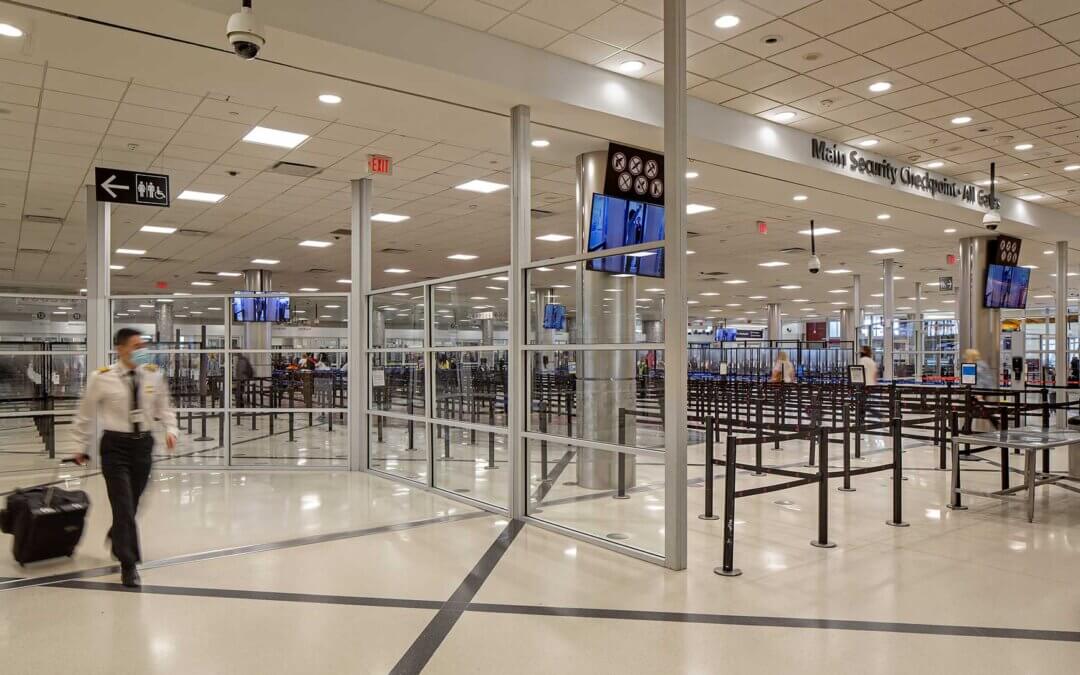This article was written by Kelly Yamanouchi for The Atlanta Journal-Constitution.
Hartsfield-Jackson International Airport plans to spend $55 million to replace X-ray machines at the main security checkpoint with more advanced scanners to screen carry-on bags.
The new computed tomography (CT) scanners will generate higher quality images for security screeners and could reduce congestion in security queues, according to Hartsfield-Jackson.
While X-ray machines generate 2-D images of bags, CT technology can create 3-D images that can be rotated and viewed at different angles. It also can detect explosives, including liquid explosives. The technology should eventually allow travelers to keep their permitted liquids and laptops inside their bags during screening.
The new equipment at the main security checkpoint will be similar to machines in the lanes at the TSA PreCheck south checkpoint with automated bin return.
The installation is expected to begin in October, according to the Transportation Security Administration. It will be done in phases, with airport officials closing four lanes at a time. Each phase is expected to last about four months. It could take 18 months to two years to complete the job, according to the airport. It’s yet to be seen how that will affect wait times.
When airport officials closed the south checkpoint to install new screening equipment several years ago, they faced criticism for sometimes long lines with wait times of more than an hour.
The Atlanta City Council awarded the contract to New South Construction and Synergy Development Partners. Operating as a joint venture, the companies also will replace closed-circuit TV cameras, improve lighting and modify electrical and mechanical systems for the CT machines.
It’s a special procurement contract, meaning it wasn’t competitively bid like other contracts. That’s because the New South/Synergy joint venture, which installed the equipment at the airport’s south checkpoint, is the only contractor in the United States that has constructed a fully functioning checkpoint in this configuration, according to a memo from the city’s chief procurement officer Martin Clarke.
The Atlanta airport is paying for the CT scanners, then handing them over to TSA for the agency’s use. TSA will be responsible for operational and maintenance costs.
At some other airports, TSA is paying for new CT scanners. Earlier this month, the agency announced it would spend $781.2 million for CT systems to be deployed at airports elsewhere. Last year, TSA paid $198 million for CT systems.
Atlanta airport officials “identified an urgent need to modernize” security equipment at the main checkpoint to upgrade technology, improve security, reduce congestion and improve the passenger experience, according to city documentation.
Six years ago, Delta Air Lines contributed $1 million for the equipment at the south security checkpoint near its check-in counters.
In 2020, Hartsfield-Jackson spent $37.4 million to expand the south checkpoint with more automated lanes. That installation was completed during the pandemic when passenger counts were down significantly.
